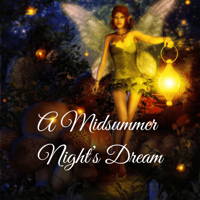Monologue Overview
Character
Gender
Female
Playing Age
Young Adult, Adult
Style
Comedic
Act/Scene
Act 1, Scene 1
Time & Place
Athens
Length
Medium
Time Period
Classical
Show Type
Play
Age Guidance
Youth (Y)/General Audiences (G)
More Monologues
Context
Helena loves Demetrius, a guy with whom she
to read the context for this monologue from A Midsummer Night’s Dream and to unlock other amazing theatre resources!Text
How happy some o'er other some can be!
Through Athens I am thought as fair as she.
But what of that? Demetrius thinks not so;
He will not know what all but he do know:
And as he errs, doting on Hermia's eyes,
So I, admiring of his
Videos
Related Learning Modules
All monologues are the property and copyright of their owners.
Monologues are presented on StageAgent for educational purposes only.
Auditions and jobs
near {{headerProps.location}}
Upcoming performances
Getting events near by you...
